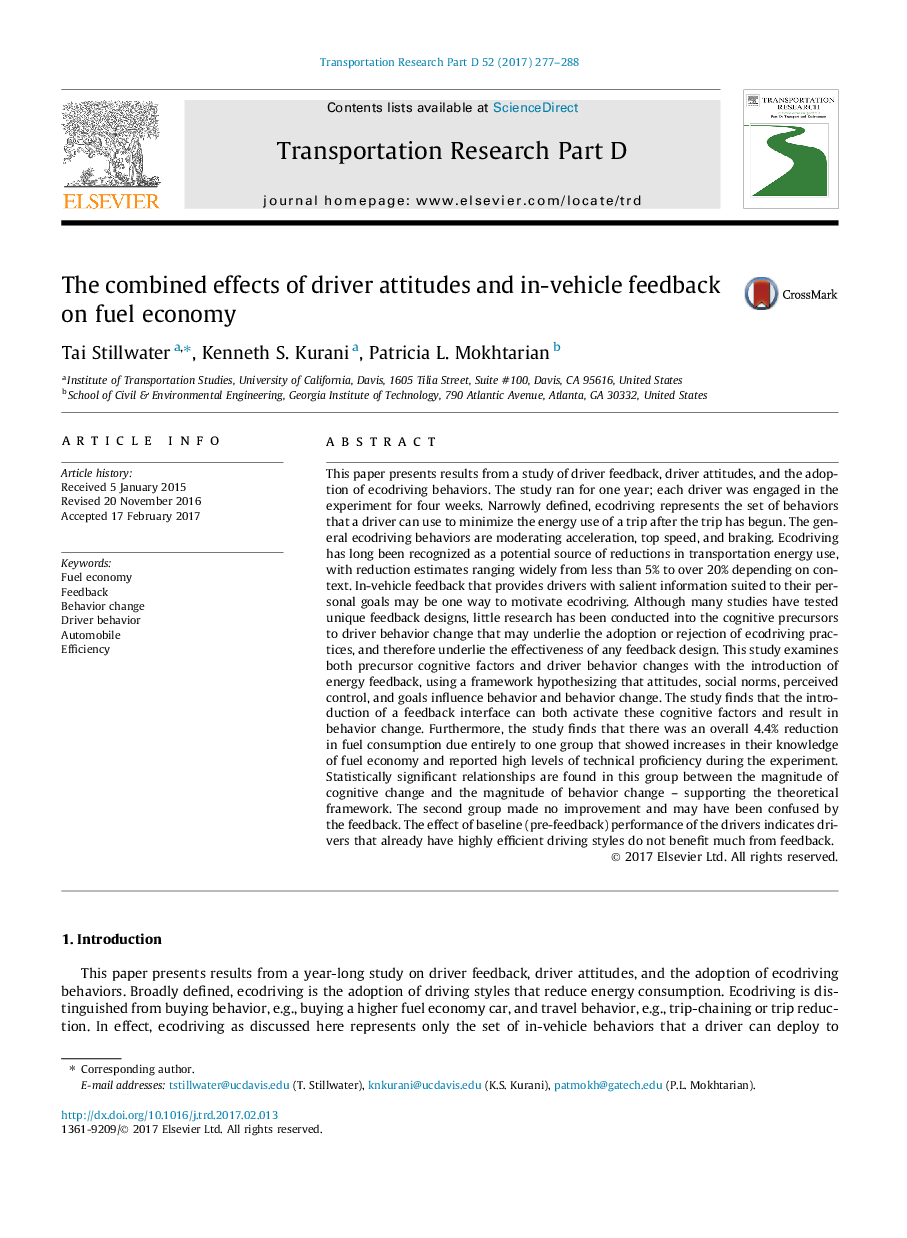ترجمه فارسی عنوان مقاله
اثرات ترکیبی نگرش راننده و بازخورد در خودرو در اقتصاد سوخت
عنوان انگلیسی
The combined effects of driver attitudes and in-vehicle feedback on fuel economy
| کد مقاله | سال انتشار | تعداد صفحات مقاله انگلیسی |
|---|---|---|
| 98847 | 2017 | 12 صفحه PDF |
منبع

Publisher : Elsevier - Science Direct (الزویر - ساینس دایرکت)
Journal : Transportation Research Part D: Transport and Environment, Volume 52, Part A, May 2017, Pages 277-288
ترجمه کلمات کلیدی
اقتصاد سوخت، بازخورد، تغییر رفتار، رفتار راننده، خودرو، بهره وری،
کلمات کلیدی انگلیسی
Fuel economy; Feedback; Behavior change; Driver behavior; Automobile; Efficiency;

